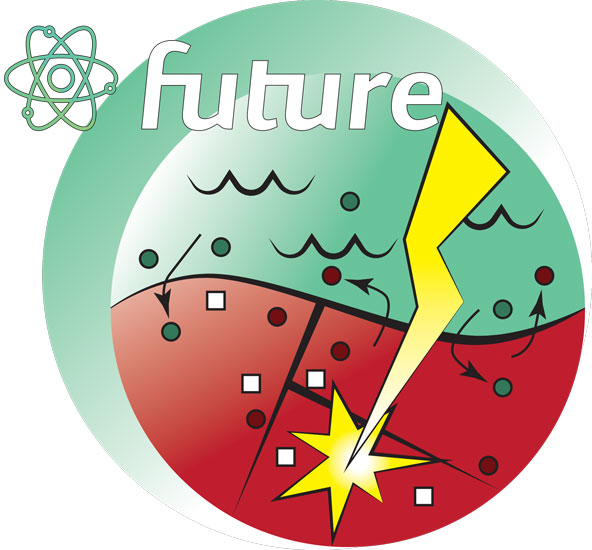UC Berkeley to co-lead DOE center to study corrosion in nuclear reactors
Researchers at Berkeley Engineering are joining scientists at the Los Alamos National Laboratory to subject nuclear reactor materials to extreme conditions. The goal is to better understand how factors such as radiation exposure and corrosion affect nuclear energy systems by studying the behavior of materials when exposed to various extreme environments.
 Image courtesy of Blas Uberuaga, Los Alamos National LaboratoryThe research is part of a new Department of Energy-funded Energy Frontier Research Center called the Fundamental Understanding of Transport Under Reactor Extremes, or FUTURE. The Department of Energy (DOE) recently announced $100 million in funding for 22 new and 20 existing energy research centers geared toward accelerating scientific breakthroughs to strengthen this country’s economic leadership and energy security.
Image courtesy of Blas Uberuaga, Los Alamos National LaboratoryThe research is part of a new Department of Energy-funded Energy Frontier Research Center called the Fundamental Understanding of Transport Under Reactor Extremes, or FUTURE. The Department of Energy (DOE) recently announced $100 million in funding for 22 new and 20 existing energy research centers geared toward accelerating scientific breakthroughs to strengthen this country’s economic leadership and energy security.
Blas Uberuaga, a researcher in the Materials Science and Technology Division at Los Alamos, is the director of FUTURE, and Peter Hosemann, UC Berkeley chair of nuclear engineering, is the co-director.
“Instead of looking at the effects of just one variable, we will be addressing the way materials react when they’re exposed to multiple conditions at once in extreme environments,” said Hosemann, who helped pioneer the Irradiation and Corrosion Experiment (ICE) protocol for experimentally testing materials under a wide range of different conditions. “Research at this center will be the first time that combined environments and conditions are addressed in a comprehensive manner.”
Variables to be studied include extreme temperature, radiation exposure, corrosion, stress and time. The researchers aim to quantify point defects in materials under the coupled extreme condition, providing a high-resolution picture of where failures may occur under different conditions.
In addition to the experimental tests, researchers will use extensive computational modeling and simulation to better describe observed phenomena.
FUTURE also includes researchers from Bowling Green State University, North Carolina State University, Pacific Northwest National Laboratory, the University of Virginia and the University of Wisconsin, Madison.
